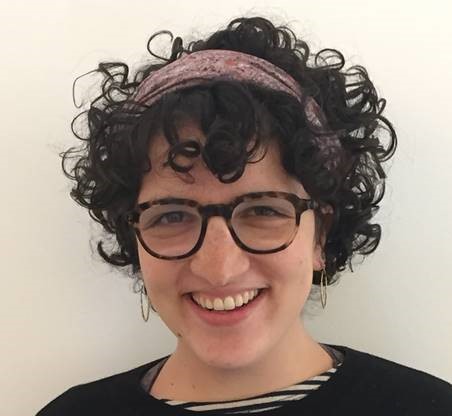Please enjoy a Dvar Torah this week from Maya Zinkow. Maya is in her fourth year of rabbinic studies at the Jewish Theological Seminary. She is a lifelong Ramahnik, and has served on staff as a madricha, rosh eidah, and most recently as rosh tefilah. She works as the rabbinic intern for the Conservative community at the Columbia/Barnard Hillel, where she has the pleasure of engaging with many students from the greater Ramah family.
Embracing Vulnerability: Reflections on Sukkot
by Maya Zinkow
When I was little, Sukkot signaled a week of distinction. Why is this week different from all other weeks? This week, we brave the Minnesota cold to enjoy food under the stars. This week, the paper chains I painstakingly stapled together serve as the only decor I need. This week, my siblings and I bundle up in countless layers to sleep in our temporary, tenuous structure. Sukkot, unlike other Jewish holidays, calls on a deeper part of ourselves. The physical demands of building a structure and actually dwelling there stands in contrast to the deeply internal and emotional work of Rosh Hashanah and Yom Kippur. On Sukkot, we bring our lives outside in a radical physical enactment of these past months’ work: we are vulnerable, we are of God, we are praying for mercy. We look up and see the stars, see the blue of the sky, and are reminded that we are indeed always safe, beneath and among God’s protection.
And yet, the Mishnah teaches that we are to move inside at the moment we become uncomfortable due to rain. Our vulnerability, then, is a kind of performance. We can feel safe again within permanent walls. The Mishnah also teaches the story of Tavi, the slave of Rabban Gamliel, who would sleep underneath a bed within the sukkah. Tavi, being a slave and therefore exempt from the mitzvah of sukkah, was permitted to do so, but a free person would not fulfill their obligation if they were to sleep beneath a structure within the sukkah’s walls. R’ Ovadia Bartenura, a 15th century Italian commentator, explains that doing so would create a barrier between the person and the sukkah; indeed, doing so creates a barrier between the person and the reminder of God’s constant presence.
The legalities of sukkot demand vulnerability; the s’chach above us must be porous, and in moving our bodies and our lives outside for a week, we remember that we are not in control. Vulnerability is challenging, but it is, as Dr. Brené Brown teaches, “a risk we have to take if we want to experience connection.” In contemplating the ritual demands of sukkot, I am reminded of spending my summers at camp living with others, sharing space with new people, living amidst nature. I am reminded of spending entire days outside on the kikar, in the agam (lake), on the migrashei sport. And I am reminded of the unpredictable Northwoods weather, of singing songs together with friends as we waited out storms in the safety of the shelters. Camp is a place that teaches the beautiful possibilities of vulnerability. When we are vulnerable with others, when we try out new skills, make new friendships or deepen old ones, when we live amidst nature, there is the possibility of deep connection.
As we dwell in the joy of Sukkot, let us appreciate it as an opportunity to experience the full breadth and depth of vulnerability. And in turn, let us consider how existing outside, living without the familiar material comforts of our permanent homes, might inspire us towards connection with the Divine, and with each other.






